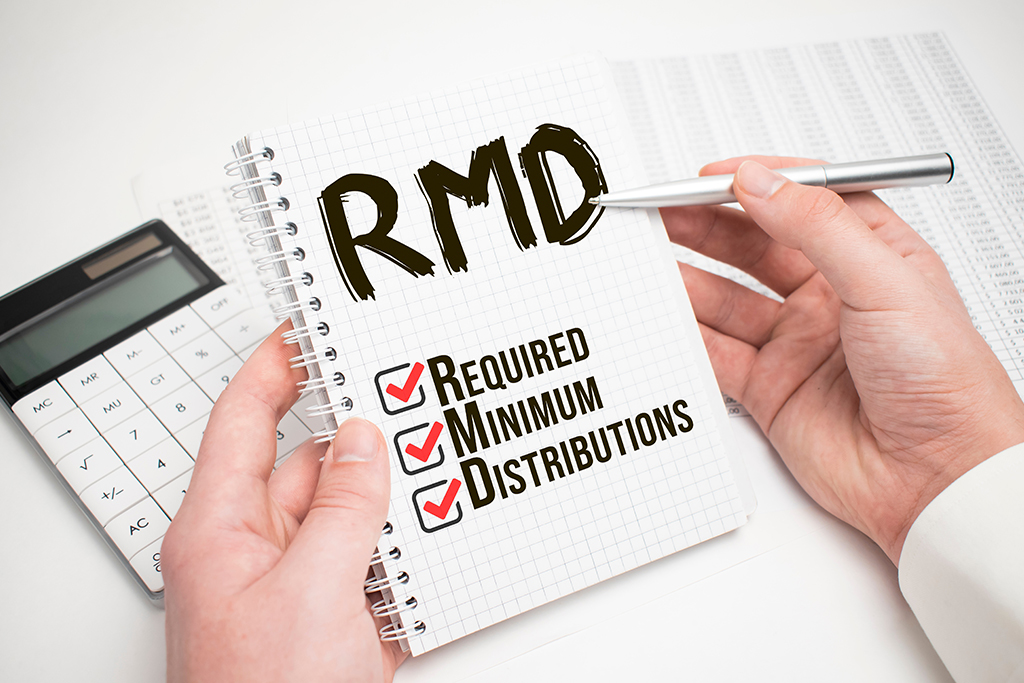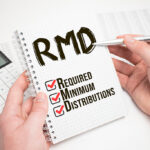RMD-season is upon us, but what are RMDs and the rules that go along with them?
Required Minimum Distributions are the withdrawals required by the government to come out of your retirement savings accounts as you age, with amounts dependent on a few factors like account balance and life expectancy.
These withdrawals are taxed as income and must be taken out by the 31st of December of the year for which they apply (if it is your first year with RMD-eligibility, you have until April 1 of the following year to make your first withdrawals).
Who Must Take RMDs
Previously, the age at which you began taking RMDs was 72, but recent legislation has upped that age to 73 and will then up that age again to 75 in 2033.
Any retiree with a retirement savings account, until 2033, will begin taking out RMDs the year they turn 73.
Calculating RMDs
RMDs are based on the year-end account value from the previous year divided by your IRS life-expectancy based on the age you turn in the current year.
RMDs are calculated separately for each account that is RMD-eligible (IRAs and 401(k)s), but the RMDs from IRAs can be removed from the same account or across multiple accounts, in lump-sums or monthly installments as long as the full amount across all IRA accounts is taken out before the end-of-year deadline.
If multiple 401(k)s are owned, their RMDs must be taken out of the accounts for which they were calculated.
Special Exception: If the owner of an account with RMD requirements is married to someone more than 10 years younger than them, the RMD amounts are calculated using a special IRS chart that divides the previous year-end account balance by the factor shown at the intersection of both spouses’ ages on the IRS table found here.
Penalties for Missed Deadlines
Failure to take out your RMDs in time can result in additional taxes taken by the IRS. Recent legislation has reduced the fee from a 50% excise tax to 25%, and if the RMD is processed before the end of the second year following the year it was due, the tax will drop to 10%.
If the missed RMD deadline is due to a reasonable cause, such as illnesses or events out of your control, it is possible to receive a waiver of the additional taxes through Form 5329 via the IRS.
Roth IRAs and Roth 401(k)s
Roth IRAs do not require RMDs, but it is important to note that RMDs are required on Roth 401(k)s until 2024. Rolling over IRAs and Roth 401(k)s into Roth IRAs is one way to avoid future RMDs, but the upfront tax cost of doing so and the potential of a 5-year waiting period before being able to access the funds in the new account is something to be considered with a financial professional before doing so.
Beginning in 2024, rolling over a Roth 401(k) will no longer be necessary as RMDs will no longer apply, but if you’d like to avoid RMDs on a regular IRA, the rolling over process will still be necessary.
After an account holder on a Roth IRA or 401(k) passes, the accounts will be subject to a post-death minimum distribution.
Surviving Spouses and RMDs
If an account holder passes before RMDs are required, previous rules stated that the surviving spouse must begin RMDs when the holder would have turned 72.
Under new legislation, the surviving spouse can now be treated as the account owner and begin taking RMDs once they reach RMD age.
The surviving account owner must opt in for this treatment via IRS procedures and make account administrators aware.
Financial Professionals and RMDs
Consideration of RMDs is an important part of every retirement plan.
An experienced financial professional can assist with determining how much needs to be taken out year over year as well as which accounts are most advantageous to use for these required withdrawals.
Financial professionals can also assist in the planning process for reducing or avoiding RMDs as much as possible, potentially reducing your yearly tax burden.
To schedule a complimentary financial review with Moore’s Wealth Management, click here or call our office at 770-535-5000, where a staff-member is awaiting your call Monday through Friday, 9AM to 5PM.
Sources:
[1] https://www.kiplinger.com/retirement/new-rmd-rules
[2] https://www.kiplinger.com/retirement/retirement-plans/required-minimum-distributions-rmds
This material is provided as a courtesy and for educational purposes only. Please consult your investment professional, legal or tax advisor for specific information pertaining to your situation. Diversification and asset allocation do not assure or guarantee better performance and cannot eliminate the risk of investment loss. As with any investment strategy, there is the possibility of profitability as well as loss.
All information contained herein is derived from sources deemed to be reliable but cannot be guaranteed. All views/opinions expressed in this newsletter are solely those of the author and do not reflect the views/opinions held by Advisory Services Network, LLC.
This article may contain links to articles or other information that may be on a third-party website. Advisory Services Network, LLC is not responsible for and does not control, adopt, or endorse any content contained on any third-party website.


